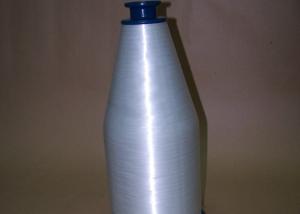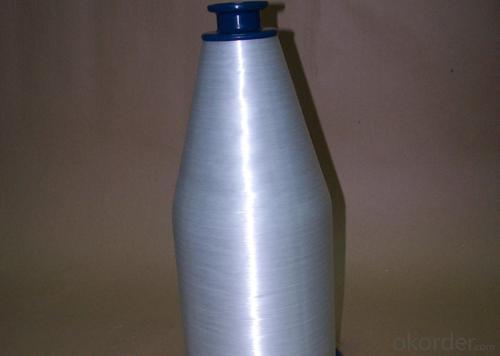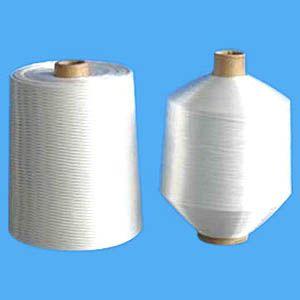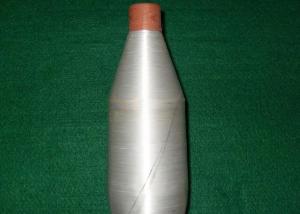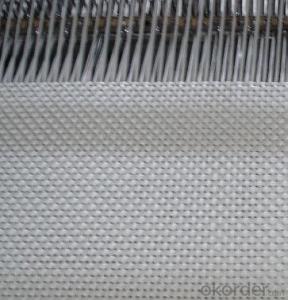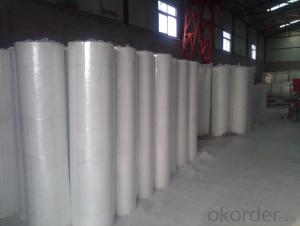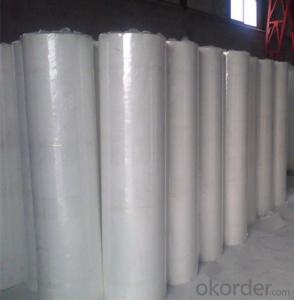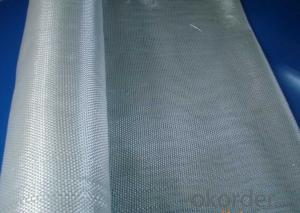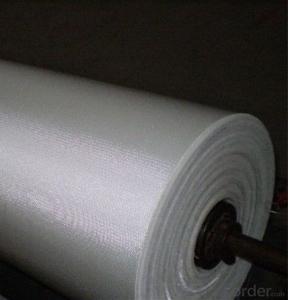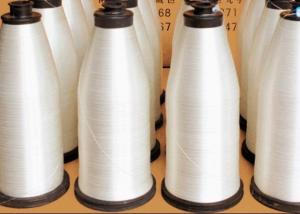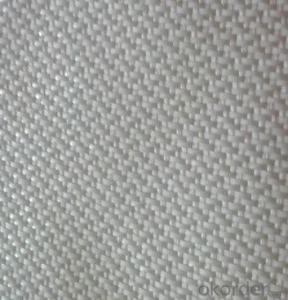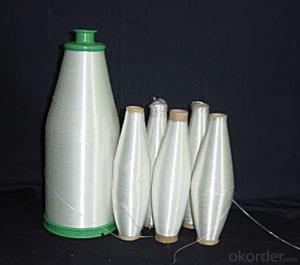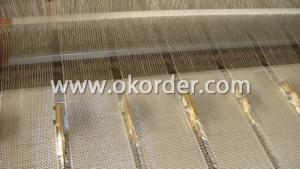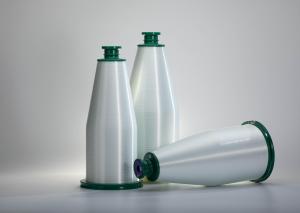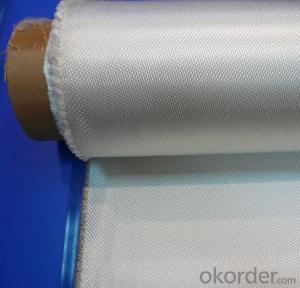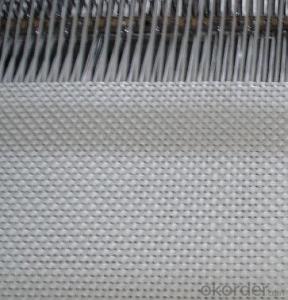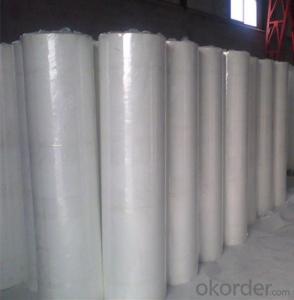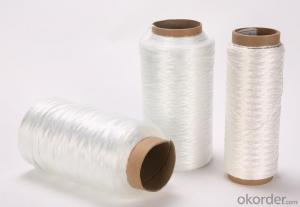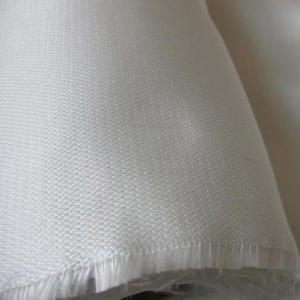Fiberglass Yarn EC5.5-6*1*2 S110
- Loading Port:
- China Main Port
- Payment Terms:
- TT or L/C
- Min Order Qty:
- 1Ton kg
- Supply Capability:
- 100000Kg/Month kg/month
OKorder Service Pledge
OKorder Financial Service
You Might Also Like
packaging & Delivery of Fiberglass Yarn EC5.5-6*1*2 S110
Specifications of Fiberglass Yarn EC5.5-6*1*2 S110
Uniform and stable linear density
Good sizing protection,low fuzz
high tensile strength of monofilament
Easy to impregnate wi
1.Uniform and stable linear density
2.Good sizing protection,low fuzz
3.high tensile strength of monofilament
4.Easy to impregnate with resin
Application of Fiberglass Yarn EC5.5-6*1*2 S110
Engineering plastics,electrical insulation,cable coating,communications equipment,appliances,building materials,etc.
Product specification of Fiberglass Yarn EC5.5-6*1*2 S110
Code description of Fiberglass Yarn EC5.5-6*1*2 S110
Example: EC8-24*1*2 S110
E: glass type; C: continuous filament; 8: filament diameter; 24: linear density;
1: the number of reversing shares
2: the number of assembled shares; S: twist direction; 110; twist number
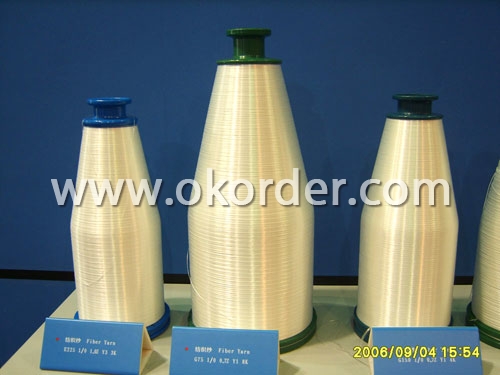

- Q: How does the thickness of fiberglass yarn affect its strength?
- The strength of fiberglass yarn is heavily influenced by its thickness, with thicker yarns generally being stronger than thinner ones. This is mainly due to the fact that thicker yarns contain more fibers, providing additional support and resistance against breakage under stress. When fiberglass yarn is thicker, it has a larger surface area, allowing for greater interlocking of fibers and more even distribution of the load. Consequently, the yarn is able to withstand higher tension and impact forces without breaking. Conversely, thinner yarns have fewer fibers, making them more prone to breakage and less capable of bearing heavy loads. Moreover, the flexibility of fiberglass yarn is impacted by its thickness. Thicker yarns are less flexible compared to thinner ones. This reduced flexibility can be advantageous in specific applications where increased stiffness and rigidity are necessary for maintaining structural integrity. Nevertheless, it is important to note that the strength of fiberglass yarn is not solely dependent on its thickness. Other factors, including the quality of the raw materials, the manufacturing process, and the level of fiber alignment, also play vital roles in determining the overall strength of the yarn.
- Q: Is fiberglass yarn resistant to fungus?
- Yes, fiberglass yarn is generally resistant to fungus.
- Q: Is fiberglass yarn suitable for use in aerospace composites?
- Yes, fiberglass yarn is suitable for use in aerospace composites. Fiberglass is a commonly used material in the aerospace industry due to its high strength-to-weight ratio, corrosion resistance, and excellent thermal insulation properties. Fiberglass yarn can be woven into fabric or used as reinforcement material in composite structures, providing strength and stiffness to the aerospace components. It is also known for its excellent electrical insulation properties, making it suitable for applications in electrical systems and wiring harnesses. Additionally, fiberglass composites are relatively cost-effective compared to other materials like carbon fiber, making them a popular choice in the aerospace industry. Overall, fiberglass yarn is a suitable material for use in aerospace composites, meeting the demanding requirements of strength, weight, and performance in aerospace applications.
- Q: Can fiberglass yarn be used in construction applications?
- Yes, fiberglass yarn can be used in construction applications. Fiberglass yarn is a strong and durable material that is resistant to corrosion, chemicals, and extreme temperatures. It is commonly used in construction for reinforcing concrete and other building materials. Fiberglass yarn can be woven into fabrics or mats, which can then be used to reinforce walls, floors, roofs, and other structural elements. It provides strength and stability to the construction, making it more resistant to cracks, fractures, and other damage. Additionally, fiberglass yarn is lightweight and easy to handle, making it a convenient choice for construction projects. Overall, fiberglass yarn is a versatile material that can significantly enhance the strength and durability of construction applications.
- Q: Can fiberglass yarn be used for heat-resistant fabrics?
- Yes, fiberglass yarn can be used for heat-resistant fabrics.
- Q: Can fiberglass yarn be used in reinforcing concrete?
- Yes, fiberglass yarn can be used in reinforcing concrete. It is commonly used as a substitute or in addition to traditional steel reinforcement in concrete structures. Fiberglass yarn offers numerous advantages such as high tensile strength, corrosion resistance, and lightweight properties, making it an effective alternative for reinforcing concrete.
- Q: Can fiberglass yarn be used for making moldings or trims?
- Certainly, moldings or trims can indeed be made using fiberglass yarn. Fiberglass possesses versatility as a material, being recognized for its strength, durability, and ability to withstand various environmental elements like moisture, chemicals, and UV radiation. These attributes make fiberglass yarn an ideal option for the manufacturing of moldings and trims, particularly in industries like automotive, construction, and marine. Fiberglass yarn can be woven or knitted into diverse shapes and sizes, enabling easy molding into the desired form for moldings or trims. Its flexibility and capacity to conform to intricate shapes make it a preferred choice for creating detailed designs and patterns. Moreover, fiberglass moldings and trims can be produced in different colors and finishes, offering a wide range of options to match specific aesthetic and design requirements. Furthermore, the inherent strength and durability of fiberglass yarn make it highly resistant to wear, tear, and impact, ensuring that moldings and trims crafted from it will endure daily use and retain their shape over an extended period of time. This makes fiberglass moldings and trims an excellent choice for applications necessitating longevity and resistance to damage, such as high-traffic areas or outdoor environments. Additionally, fiberglass yarn possesses excellent dimensional stability, meaning it undergoes minimal expansion or contraction with changes in temperature. This characteristic guarantees that moldings and trims made from fiberglass yarn will maintain their shape and size, even under extreme temperature conditions. In conclusion, fiberglass yarn is a suitable material for the production of moldings and trims due to its strength, durability, resistance to various environmental factors, flexibility, and ability to conform to complex shapes. With its array of available colors and finishes, as well as its longevity and dimensional stability, fiberglass yarn proves to be a practical and visually pleasing choice for diverse industries and applications.
- Q: Is fiberglass yarn resistant to pests or insects?
- Yes, fiberglass yarn is resistant to pests and insects.
- Q: Is fiberglass yarn suitable for textile manufacturing?
- Yes, fiberglass yarn is suitable for textile manufacturing. Fiberglass yarn is made from strands of glass fibers that are twisted together to form a strong and durable thread. It has several properties that make it suitable for textile production. Firstly, fiberglass yarn is highly resistant to heat and fire. This makes it an excellent choice for manufacturing protective clothing, such as fire-resistant suits or insulation materials. It can withstand high temperatures without melting or degrading, providing a high level of safety for the wearer. Secondly, fiberglass yarn is known for its high tensile strength. It is stronger than many other textile materials, such as cotton or polyester. This strength makes it suitable for applications that require durability and resistance to tearing or breaking, such as industrial fabrics, reinforcement materials, or composite materials. Additionally, fiberglass yarn has good chemical resistance. It is not easily damaged by exposure to chemicals or solvents, making it suitable for manufacturing textiles that will be used in harsh environments, such as chemical plants or laboratories. Furthermore, fiberglass yarn is lightweight and has good flexibility. This makes it comfortable to wear and easy to handle during the textile manufacturing process. It can be easily woven, knitted, or braided into different fabrics or products. However, it is important to note that fiberglass yarn can be irritating to the skin and may cause itching or discomfort. Therefore, it is often used in combination with other fibers or coatings to improve its comfort and usability in clothing or other textile applications. In summary, fiberglass yarn is a suitable material for textile manufacturing due to its heat resistance, high tensile strength, chemical resistance, and flexibility. However, its potential skin irritation should be taken into consideration and mitigated through appropriate processing or blending with other fibers.
- Q: Is fiberglass yarn suitable for making sports helmets?
- Yes, fiberglass yarn is suitable for making sports helmets. Fiberglass is a durable and strong material that can provide excellent impact resistance, which is crucial for protecting the head during sports activities. It is lightweight, allowing for greater comfort and mobility while wearing the helmet. Additionally, fiberglass has good heat resistance and can withstand extreme temperature conditions, making it suitable for use in various sports environments. Moreover, fiberglass yarn can be easily molded into different helmet shapes, ensuring a customized fit for each individual. Overall, fiberglass yarn is a suitable material choice for making sports helmets due to its strength, durability, lightweight nature, and ability to provide necessary protection.
1. Manufacturer Overview
| Location | Shandong, China |
| Year Established | 2008 |
| Annual Output Value | US$ 5 Million - US$ 10 Million |
| Main Markets | North America, Eastern Europe, Southeast Asia, Mid East, Eastern Asia |
| Company Certifications |
2. Manufacturer Certificates
| a) Certification Name | |
| Range | |
| Reference | |
| Validity Period |
3. Manufacturer Capability
| a) Trade Capacity | |
| Nearest Port | Qingdao |
| Export Percentage | 41%-50% |
| No.of Employees in Trade Department | 3-5 People |
| Language Spoken: | English, Chinese |
| b) Factory Information | |
| Factory Size: | 10400 square meters |
| No. of Production Lines | Above 10 |
| Contract Manufacturing | Design Service Offered Buyer Label Offered |
| Product Price Range | Average |
Send your message to us
Fiberglass Yarn EC5.5-6*1*2 S110
- Loading Port:
- China Main Port
- Payment Terms:
- TT or L/C
- Min Order Qty:
- 1Ton kg
- Supply Capability:
- 100000Kg/Month kg/month
OKorder Service Pledge
OKorder Financial Service
Similar products
Hot products
Hot Searches
Related keywords
